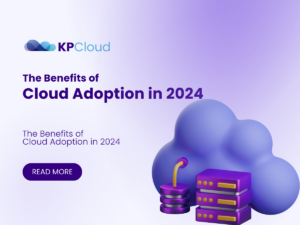Introduction
Having a dynamic and engaging online presence is crucial for businesses and individuals in today’s digital era. WordPress is a popular platform for building and managing websites, known for its user-friendly interface and extensive plugins. However, hosting your WordPress website on the cloud has become the preferred choice for many due to its optimal performance and reliability. This guide will take you through the process of hosting your WordPress website on cloud computing, providing valuable insights and practical steps. Cloud computing is reshaping the way we approach web hosting, and understanding how to leverage its power for your WordPress site is critical since WordPress powers over a third of the web. This post offers an in-depth guide on hosting a WordPress website on cloud computing.
Table of Contents
- Introduction
- What is Cloud Computing?
- Benefits of Hosting WordPress on the Cloud
- Why Choose Cloud Computing for WordPress Hosting?
- Different between Traditional Hosting vs Cloud Computing
- Step-by-Step Guide to Hosting WordPress on AWS
- Step-by-Step Guide to Hosting WordPress on Google Cloud
- Case Study : E-commerce Startup
- Frequently Asked Questions (FAQs):
- Conclusion
When using traditional web hosting, your website is stored on only one server. This can cause problems with reliability and scalability. If your website grows and requires more resources or if the server malfunctions, your website may experience performance issues or even become unavailable. Alternatively, cloud hosting stores your website on multiple servers, generating a ‘cloud’ of resources that can be adjusted as needed. This enables your site to handle more traffic and provides improved uptime and speed. Additionally, you only pay for the resources you utilize, making cloud hosting a cost-effective solution for many businesses.
What is Cloud Computing?
Cloud computing involves delivering computing resources—such as servers, storage, databases, networking, software, and analytics—over the internet, often referred to as “the cloud.” This technology offers numerous advantages, including flexibility, scalability, cost-effectiveness, and enhanced performance. By hosting your WordPress website on the cloud, you tap into these benefits while ensuring a seamless user experience for your visitors.
Benefits of Hosting WordPress on the Cloud
Transitioning your WordPress website to the cloud provides a plethora of benefits:
- Scalability: Easily scale your resources up or down based on traffic fluctuations.
- Reliability: Cloud hosting offers better uptime and availability compared to traditional hosting.
- Performance: Improved loading times and responsiveness for a better user experience.
- Security: Robust security measures and regular updates enhance website protection.
- Cost-Efficiency: Pay only for the resources you use, reducing infrastructure overhead.
- Global Accessibility: Reach a worldwide audience with reduced latency and faster content delivery.
- Automatic Backups: Regular backups ensure data integrity and disaster recovery.
Why Choose Cloud Computing for WordPress Hosting?
Cloud computing brings several benefits to WordPress website hosting. It provides high scalability, meaning you can easily adjust your hosting resources based on your site’s traffic. Additionally, it guarantees high availability, ensuring that your website remains accessible. It also provides robust security features, protecting your site from threats and attacks.
Different between Traditional Hosting vs Cloud Computing
|
Features |
Traditional Hosting |
Cloud Computing |
|
Cost |
Usually has a fixed monthly or annual cost. |
More flexible pricing. Pay for what you use. It can be more cost-effective for variable workloads. |
|
Scalability |
Limited scalability. It might require physical server upgrades to scale. |
Highly scalable. Resources can be increased or decreased on demand. |
|
Reliability |
Depends on the quality of the hosting provider’s infrastructure. If one server goes down, the site could go offline. |
Higher reliability due to distributed nature of the cloud. If one server goes down, others can pick up the workload. |
|
Performance |
Limited by the resources of the specific server your website is hosted on. |
Can be faster because resources can be allocated dynamically from a large pool. |
|
Security |
Security depends on the hosting provider’s practices. Limited control over security measures. |
Offers high-security measures and controls but also requires more understanding to configure correctly. |
|
Setup and Management |
Might be simpler to set up and manage. Many providers offer managed WordPress hosting. |
It can be more complex to set up and manage, but offers more control and customization. |
|
Geographical Presence |
Limited to the location of the hosting provider’s servers. |
Global presence. Can host your website closer to your users for lower latency. |
|
Backup and Recovery |
Backup and recovery options depend on the hosting provider. Some may charge extra for these services. |
Generally offers robust backup and recovery options, often included in the cost. |
|
Environmental Impact |
Energy efficiency depends on the hosting provider’s infrastructure. |
Can be more energy efficient due to shared resources and economies of scale. |
Please note that actual experiences may vary depending on the specific providers you choose, as there can be a lot of variation in quality within both traditional hosting and cloud computing services.
Step-by-Step Guide to Hosting WordPress on the Cloud
Choosing a Cloud Service Provider: Compare popular cloud service providers like Amazon Web Services (AWS), Google Cloud Platform (GCP), and Microsoft Azure to find the best fit for your needs.
Step-by-Step Guide to Hosting WordPress on AWS
- Create an AWS Account:
The first step is to create an account on AWS. Visit their website and sign up. - Set Up AWS EC2 Instance:
AWS EC2 (Elastic Compute Cloud) provides scalable computing capacity in the AWS Cloud. Here, you can set up and configure the settings according to your requirements. - Install WordPress on AWS:
Once your EC2 instance is up and running, you can install WordPress. AWS provides a quick start guide for WordPress installation that you can follow. - Configure Your WordPress Site:
After installing WordPress, log in to your WordPress dashboard using the admin credentials. Here, you can choose a theme, install plugins, and start customizing your site. - Set Up Amazon RDS for MySQL:
Amazon RDS (Relational Database Service) makes setting up, operating, and scaling a relational database in the cloud easy. You can use it to create a MySQL database for your WordPress site. - Route Traffic with Amazon Route 53:
Amazon Route 53 is a scalable Domain Name System (DNS) web service. It’s used to direct users to your website by translating friendly domain names like www.example.com into the numeric IP addresses like 192.0.2.1 that computers use to connect to each.
Hosting a WordPress website on AWS Cloud can revolutionize your web presence. With its scalable, reliable, and cost-effective services, AWS provides an excellent platform for WordPress hosting. This step-by-step guide aims to simplify the process for you and provide you with the knowledge needed to get your WordPress site up and running on AWS Cloud.
Step-by-Step Guide to Hosting WordPress on Google Cloud
Step 1: Create a Google Cloud Account
To begin, you need to create an account on Google Cloud. You will need to provide some basic information and billing details.
Step 2: Create a New Project
Once your account is set up, navigate to the Google Cloud Console to create a new project. Each project corresponds to a different website that you might host.
Step 3: Set up Google Cloud SQL
Google Cloud SQL is a fully-managed database service that makes it easy to set up, maintain, manage, and administer your relational databases. Create a MySQL database for your WordPress site here.
Step 4: Deploy WordPress
The next step is to use the Google Cloud Launcher to deploy WordPress. This is a simple process where you choose WordPress from the available solutions, configure it according to your needs, and hit ‘Deploy’.
Step 5: Configure Your WordPress Site
After WordPress is installed, you can log into your WordPress dashboard using the admin credentials. Here, you can select a theme, install plugins, and start building your site.
.
Benefits of Hosting WordPress on Google Cloud
Hosting your WordPress site on Google Cloud brings many benefits. Google Cloud offers high scalability, so your site can handle increased traffic without compromising performance. It also provides a global network of data centers, meaning faster content delivery and better SEO. Plus, its commitment to security, with encryption at rest and in transit, means your site is well protected.
Case Study : E-commerce Startup:
An eCommerce startup had initially hosted their WordPress website on a shared hosting platform. As their business grew, they began experiencing performance issues and downtime, affecting their sales and customer experience.
They decided to move their website to AWS Cloud. Post-migration, they leveraged AWS’s EC2 and RDS services for their server and database needs. They used AWS’s Elastic Load Balancer to distribute incoming traffic and ensure their website remained responsive during peak sales periods.
As a result, they saw a 60% improvement in their site’s load time and significantly reduced downtime. They also reported a 30% decrease in hosting costs due to AWS’s pay-as-you-go model. The move to AWS helped them scale their business and provide a better shopping experience for their customers.
Frequently Asked Questions (FAQs):
-
(1) What is cloud computing?- Cloud computing delivers computing services over the Internet, allowing you to store and access data on a remote server.
- (2) Why should I consider cloud computing for WordPress hosting?
-
- Cloud computing offers high scalability, availability, and security for your WordPress site.
- (3) How do I host a WordPress website on cloud computing?
-
- You need to choose a cloud service provider, set up your cloud account, install WordPress, configure your site, and point your domain to the cloud server.
(4) Why should I host my WordPress site on AWS Cloud?- AWS Cloud offers high scalability, reliability, and cost-effectiveness, making it an excellent choice for WordPress hosting.
- (5) How do I host my WordPress site on AWS Cloud?
-
- After creating an AWS account, you must set up an AWS EC2 instance, install WordPress, configure your site, set up Amazon RDS for MySQL, and route traffic with Amazon Route 53.
- (6) Can I migrate my existing WordPress site to AWS Cloud?
- Yes, you can migrate your existing WordPress site to AWS Cloud. AWS
- (7) Can I migrate my existing WordPress site to the cloud?
Yes, you can migrate your existing site to the cloud. Most cloud service providers offer guidance on this process. - (8) Is cloud computing cost-effective for WordPress hosting?
With its pay-as-you-go model, cloud computing can be a cost-effective solution for WordPress hosting.
Conclusion:
This guide provides instructions on how to host your WordPress site in the cloud, which offers scalability, reliability, and cost-effectiveness compared to traditional hosting methods. We cover everything from setting up a cloud account to installing WordPress and managing your site’s performance.
Selecting the right cloud hosting provider that fits your needs and budget is crucial since it can significantly impact your site’s performance. By following the steps outlined in this guide, you can take full advantage of cloud computing for your WordPress site.
Integrating your WordPress site with cloud hosting prepares you for the present and future-proofs your online presence. As your site grows, you can easily scale up your resources to handle more traffic, enjoy better uptime, speed, and security, and provide a better experience for your visitors, giving you peace of mind. Happy hosting!


